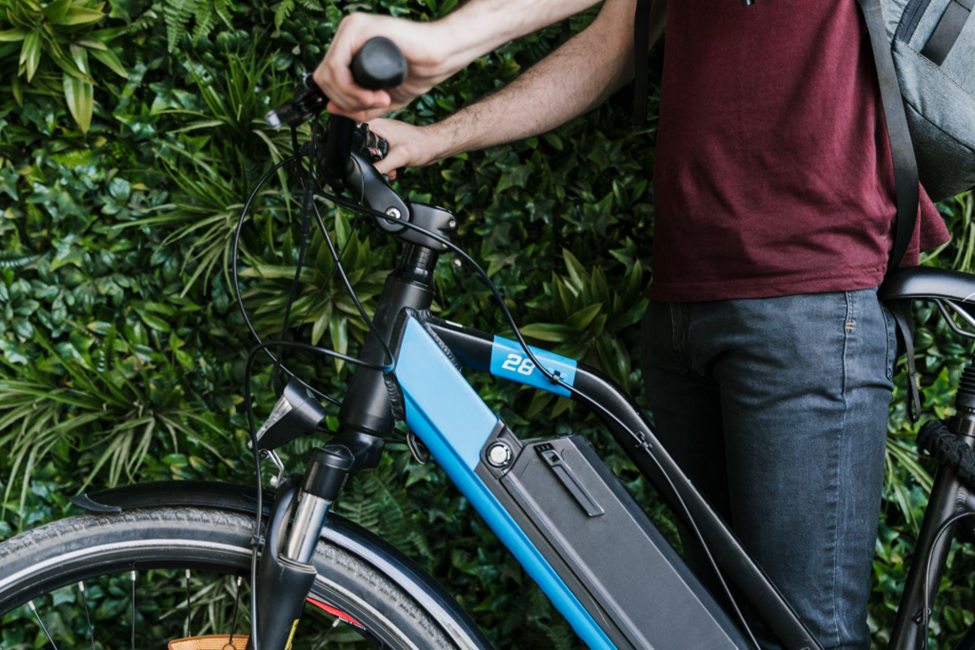
Electric bicycles are a rising star in India, especially in , where they bridge the
gap between pedal-powered bicycles and expensive fuel-guzzling motorcycles. They offer convenience, affordability, and eco-friendliness, making them a top choice for sustainable transportation.
But have you ever wondered what it really costs to purchase, charge, and maintain one?
Initial Investment
Electric bicycles come with a higher price tag than traditional ones, but their advantages justify the additional cost. Traditional bicycles, which start at Rs. 14,000, may offer more affordability, but electric bicycles, ranging from Rs. 27,000 to Rs. 60,000, provide valuable additional functionality.
So, why are electric bicycles so expensive?
- -ion batteries, which make electric cycles convenient and efficient.
- Lightweight Frames, made from valuable non-ferrous materials, with high-end models featuring full alloy construction
- Motor, which drives pedal assist and throttle functions, reducing exertion while cycling
- Electrical controller, which acts as the cycle’s "brain," distributing power and signals to various components
- Other parts, such as sensors, seats, wiring, lights, and locks, which are of superior quality compared to standard bicycles.
- Advanced features, including striking matte paint, foldable designs, premium brakes, custom heart rate trackers, a 100+ km range, titanium frame material, and more
Furthermore, the initial outlay may be smaller than it initially seems; electric bicycles often come with built-in savings, since several state governments are providing financial incentives to purchase them. For example, offers up to 25% of the MRP (max INR 5,500), while plans to give 25% (max INR 5,000) to the first 20,000 e-cycle owners.
Charging Costs
Here’s how to calculate your e-cycle’s cost per charge:
Battery’s kWh x Electric Tariff Rate per kWh = cost per charge
For example, a battery capacity of 0.250 kWh multiplied by Uttar Pradesh’s tariff rate (Rs. 7) results in a charge cost of just Rs. 1.75 to cycle 20 - 30 kilometers.
Maintenance and Repair Expenses
Electric bicycles require minimal, if any, maintenance. The main expense is the battery, which has to be changed every 5 years, for about Rs. 3000 - 5000. Frequent riders will also need to replace annually, for about Rs. 60 - 300. Routine cleaning, lubrication, and tire inflation incur slight additional expenses.
Comparing Value with Traditional Bicycles
Traditional bicycles definitely win on price; their pricing starts at Rs. 14,000, whereas electric bicycles cost upwards of 24,000. However, electric cycles’ advanced connectivity, assist, and throttle features make them well worth the additional investment!

|
Type of Vehicle |
Physical Exertion |
Viability for Long Commute |
Flexibility |
Time Efficiency |
Technological Features |
Connectivity |
|
Traditional Bicycle |
Intensive |
Low; rider will quickly become exhausted |
None |
Low; the riders can lose speed due to exhaustion |
None |
None |
|
Electric Bicycle |
Riders can apply minimal effort by using the pedal assist feature or throttle mode |
High; riders can easily avoid exhaustion |
Riders can choose whether to pedal manually or to use the pedal-assist feature, or throttle mode |
High; the rider can maintain a consistent speed |
Many, including GPS and heart rate tracking |
Riders can connect their smartphones to get riding data |
The Bottom Line
Electric bicycles offer convenience and superior performance, with features like pedal assist, throttle mode, and connectivity functionality. They come with a slightly higher price tag, due to components like lithium-ion batteries and lightweight frames, but state government incentives in India help offset this. Recharging your electric bicycle costs a mere Rs. 1.75, enabling you to conquer impressive distances of 20-30 kilometers. Maintenance is a breeze, with battery replacement required only every 5 years. Compared to their traditional counterparts, electric bicycles demand less physical effort, grant riding flexibility, and boast advanced features like GPS and heart rate tracking. Embrace the upfront investment, and unlock a world of comfort, convenience, and long-term savings!
